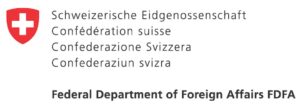South Sudan has experienced armed conflict for more than four decades. The most recent episode at the national level stopped in September 2018, when the conflict parties signed the Revitalised Agreement on the Resolution of the Conflict
in the Republic of South Sudan (R-ARCSS). South Sudanese women played an important role in pushing for the R-ARCSS, both inside and outside the negotiation room. They have also been actively lobbying for and advancing the implementation
of the agreement.
The R-ARCSS has given rise to a robust ceasefire at the national level. However, peace in South Sudan remains fragile. Inter-communal violence has intensified recently. Many of the R-ARCSS provisions remain to be fully implemented, with
civil society, including women peacemakers, struggling to influence the peace process at the national level.
The announcement of the Unity Government in August 2022 to extend the transitional period for another two years demonstrated both a lack of genuine initiative and ideas among the political elites for how to address the deadlock in
the R-ARCSS’ implementation. It also suggests that the political elites have reached something of a “post-conflict elite pact”, under which they found consensus on how to share resources, power, and influence among themselves. This elite pact
ignores the underlying causes of conflict and reduces the prospects for greater inclusion in the R-ARCSS’ implementation.
The objective of this policy brief is two-fold. Firstly, it seeks to take stock of both the current challenges to an inclusive R-ARCSS implementation process and South Sudanese women’s peacemaking activities.3 Secondly, it aims to identify entry
points for South Sudanese women peacemakers, national stakeholders in South Sudan, and the international community to achieve a more inclusive, sustainable peace process in South Sudan.






